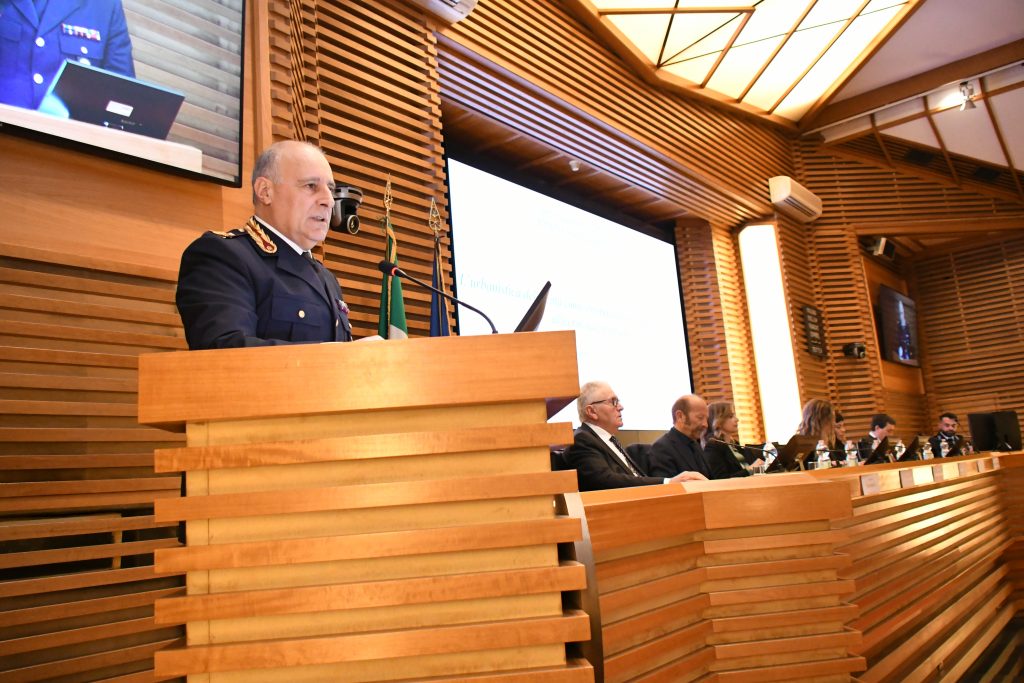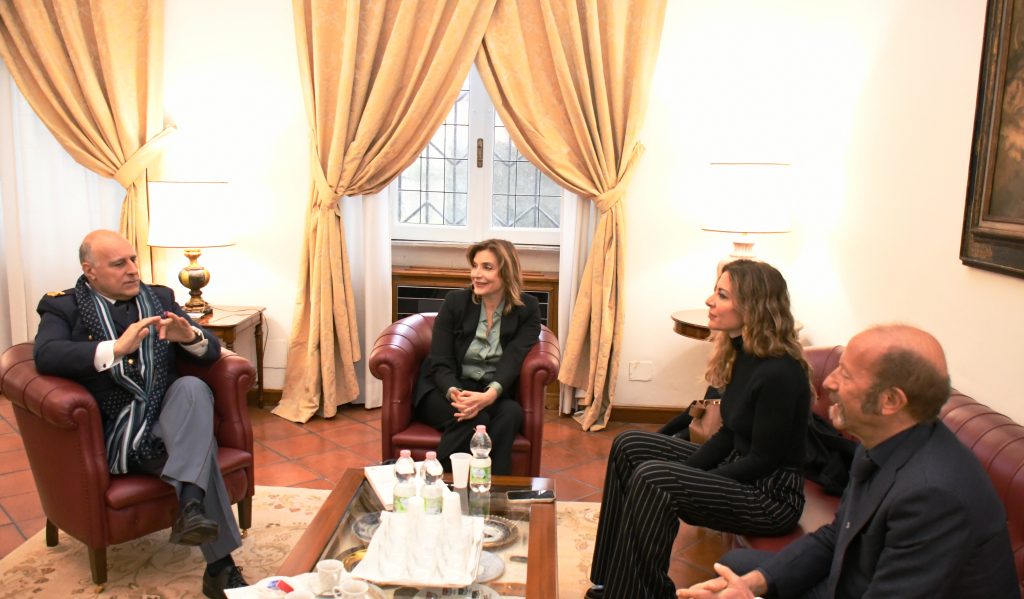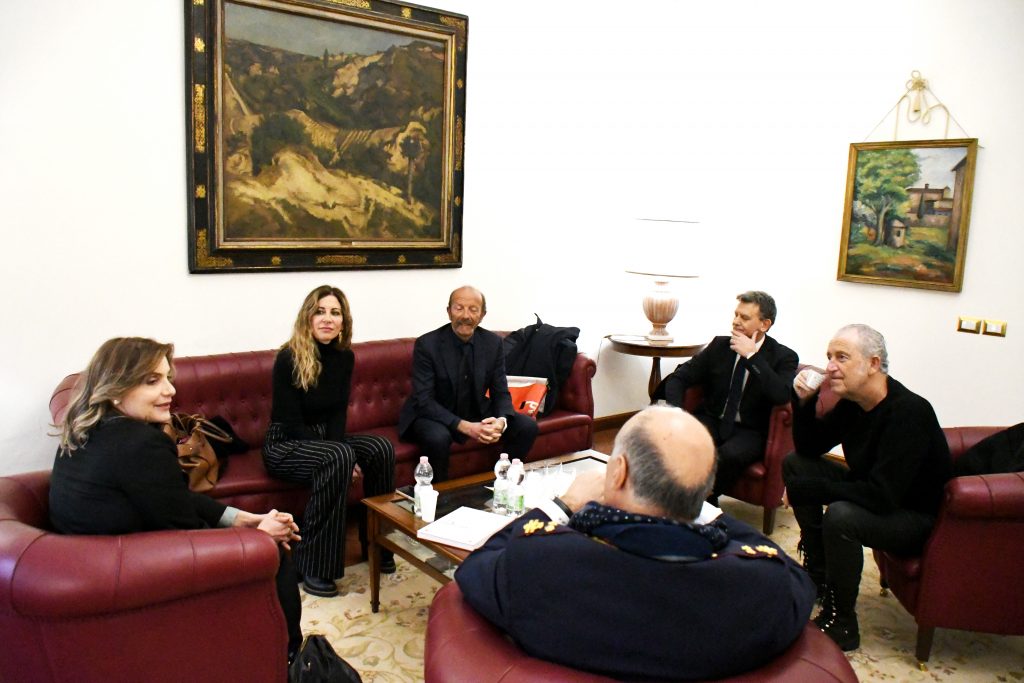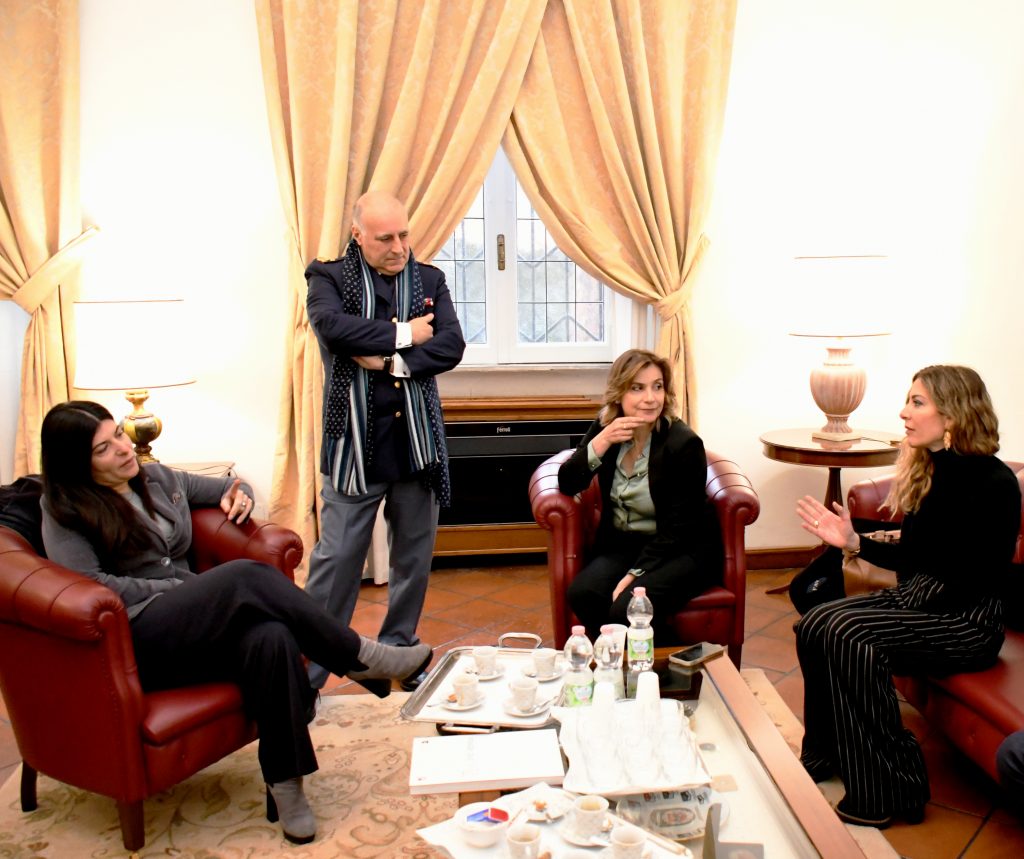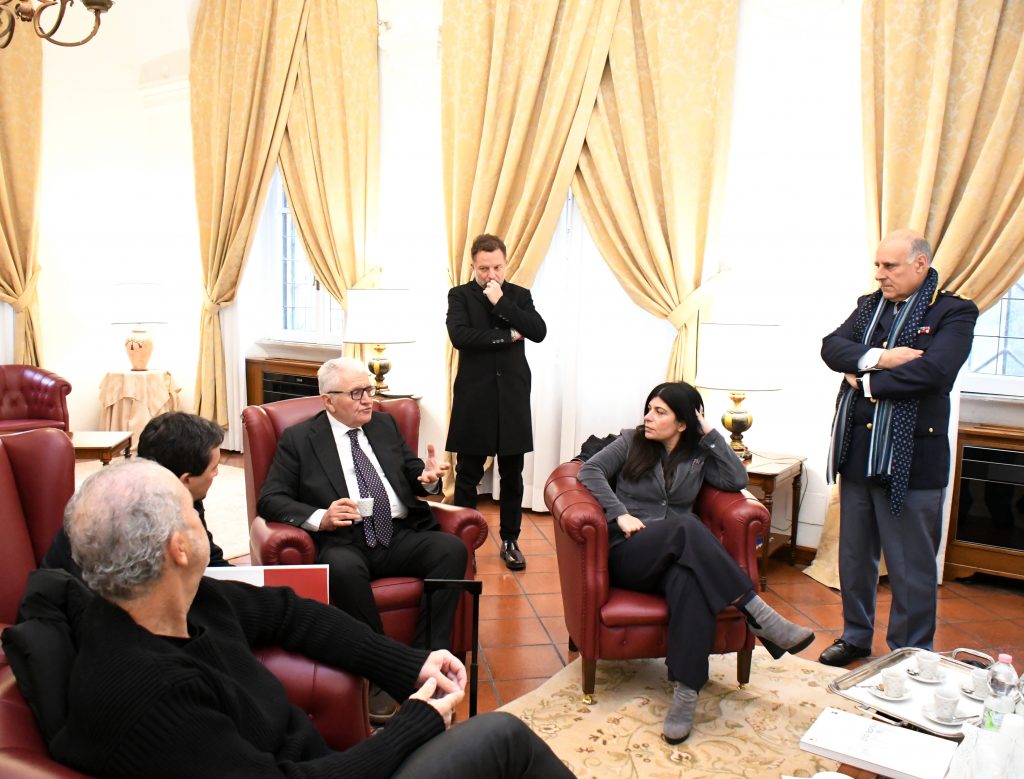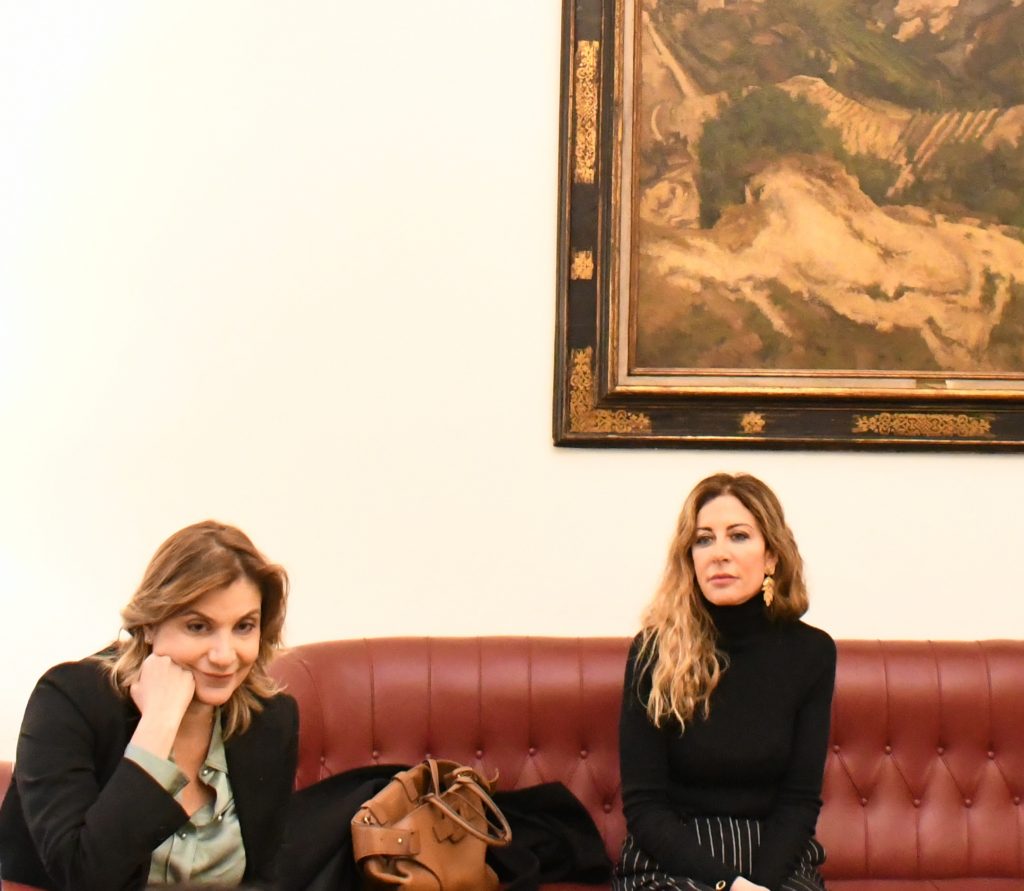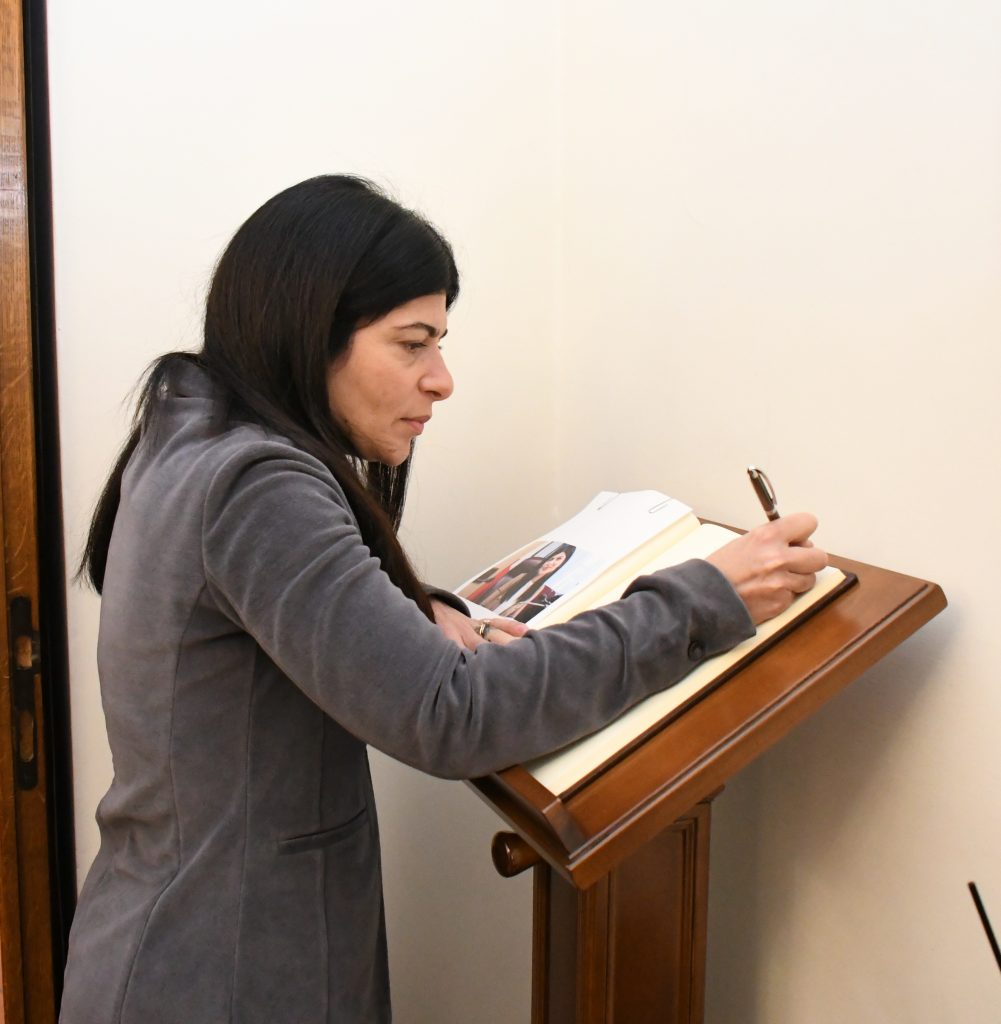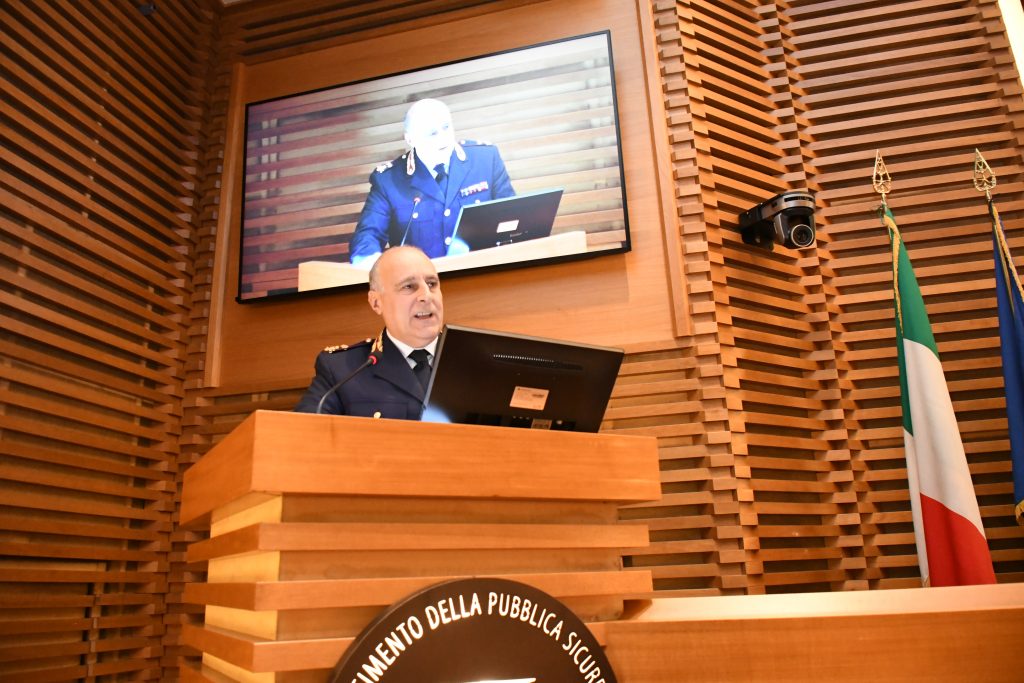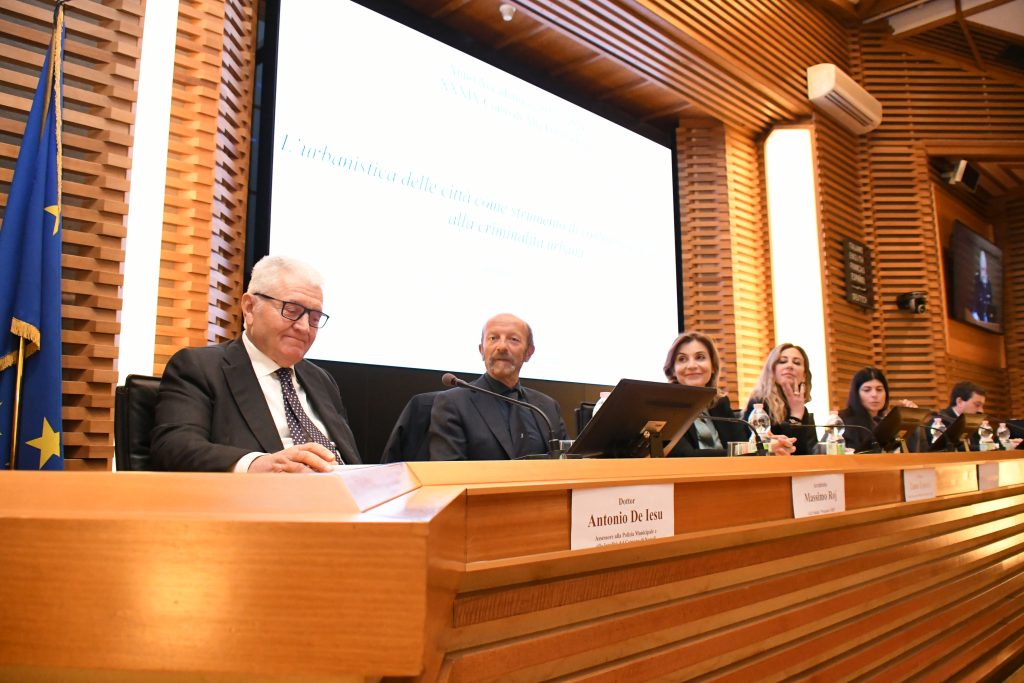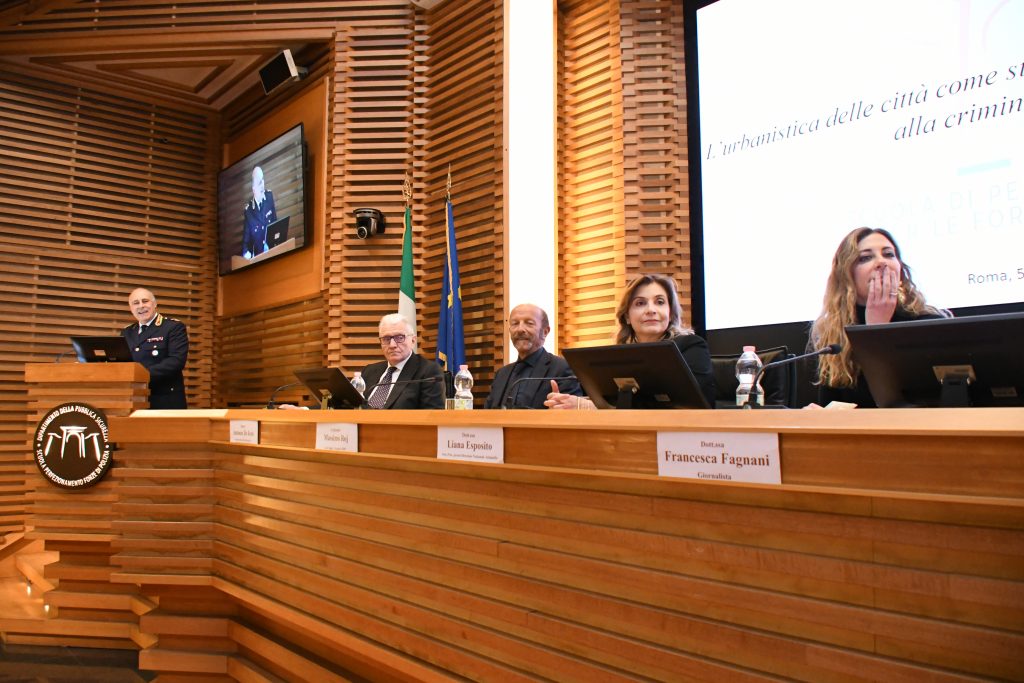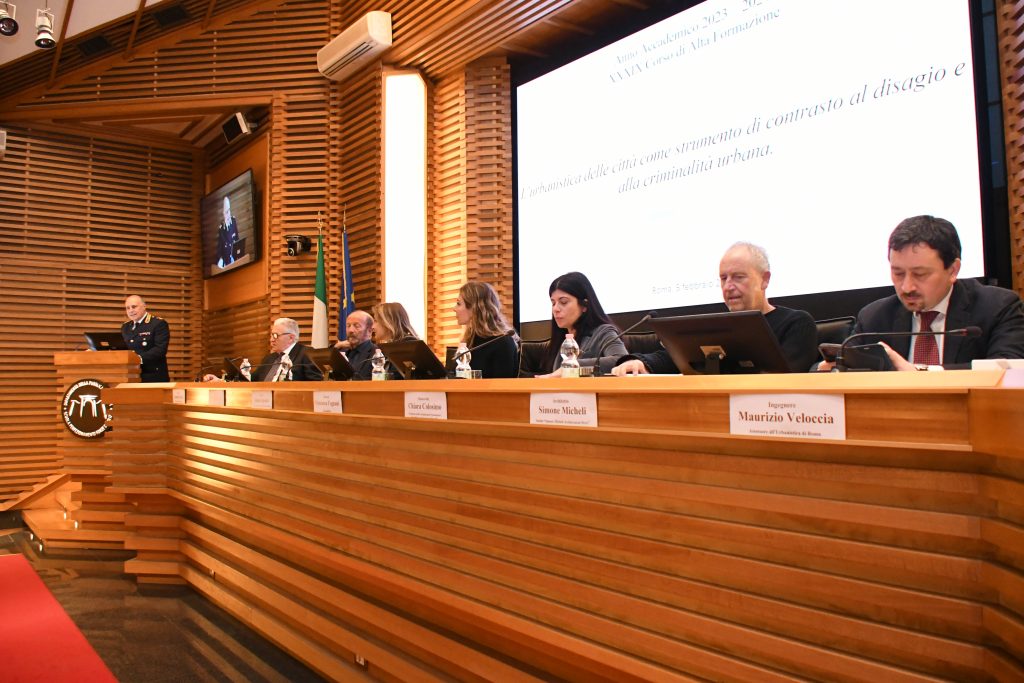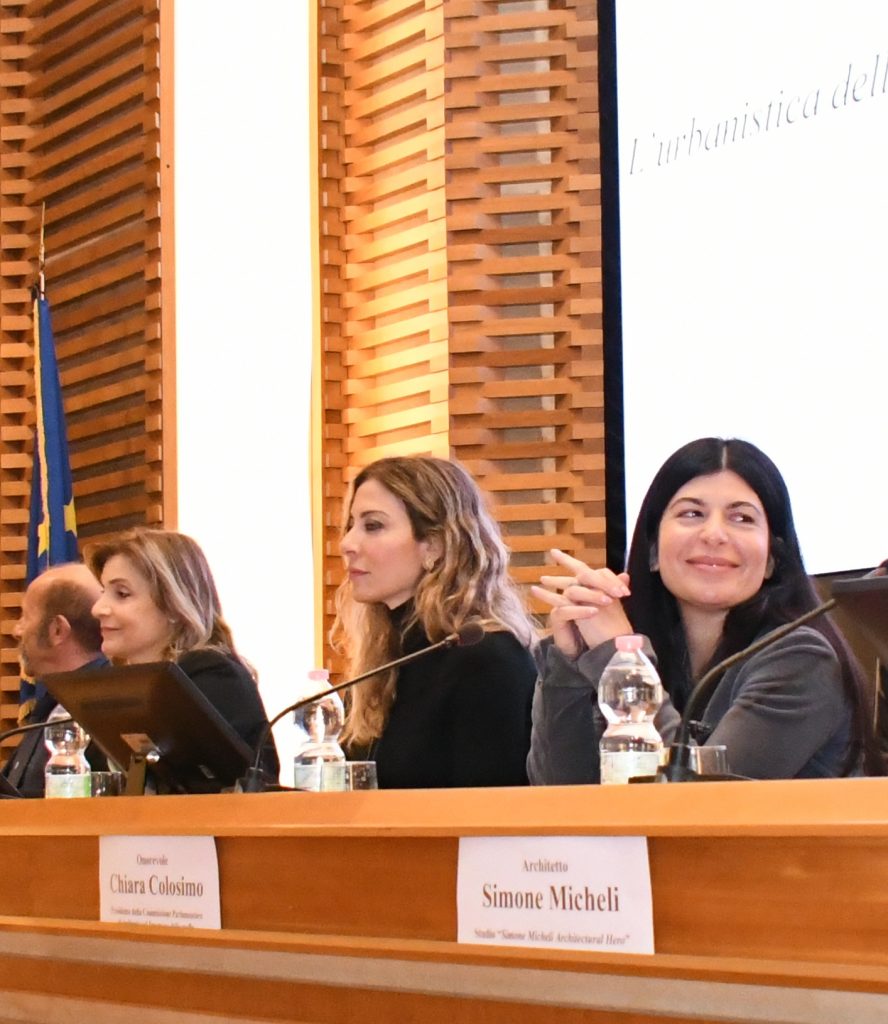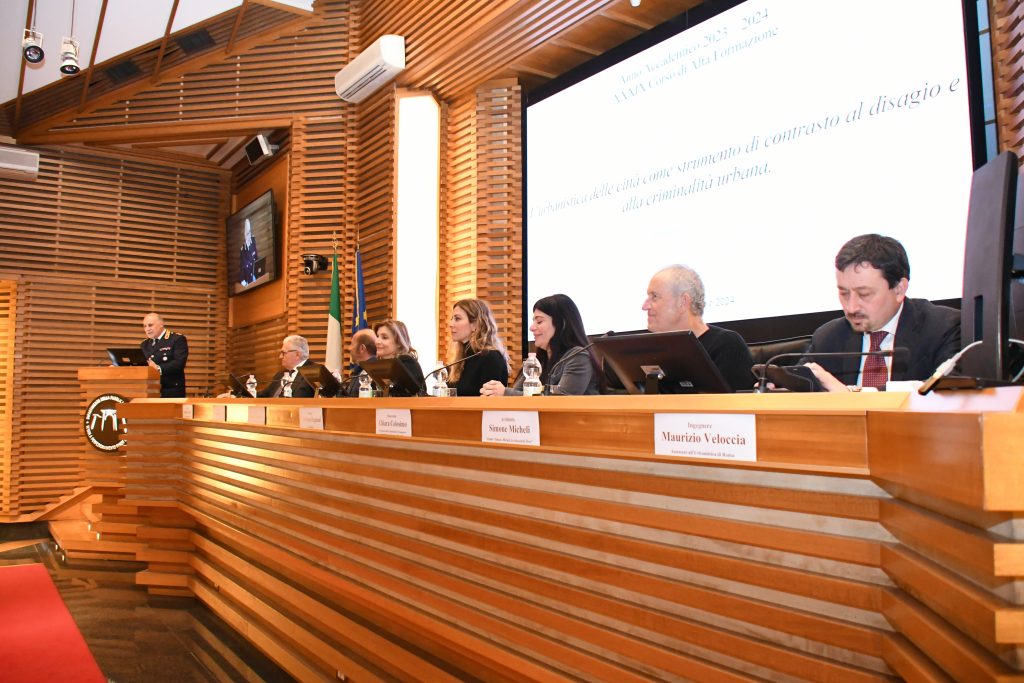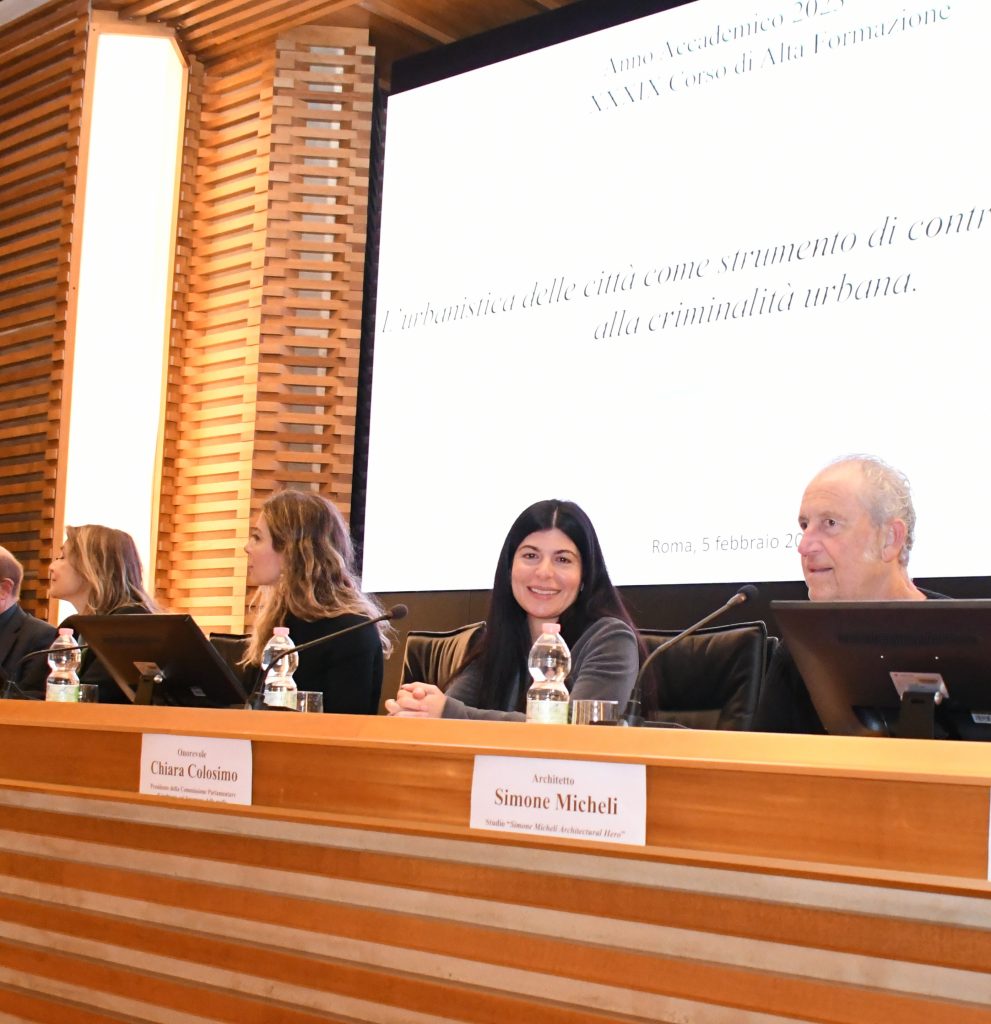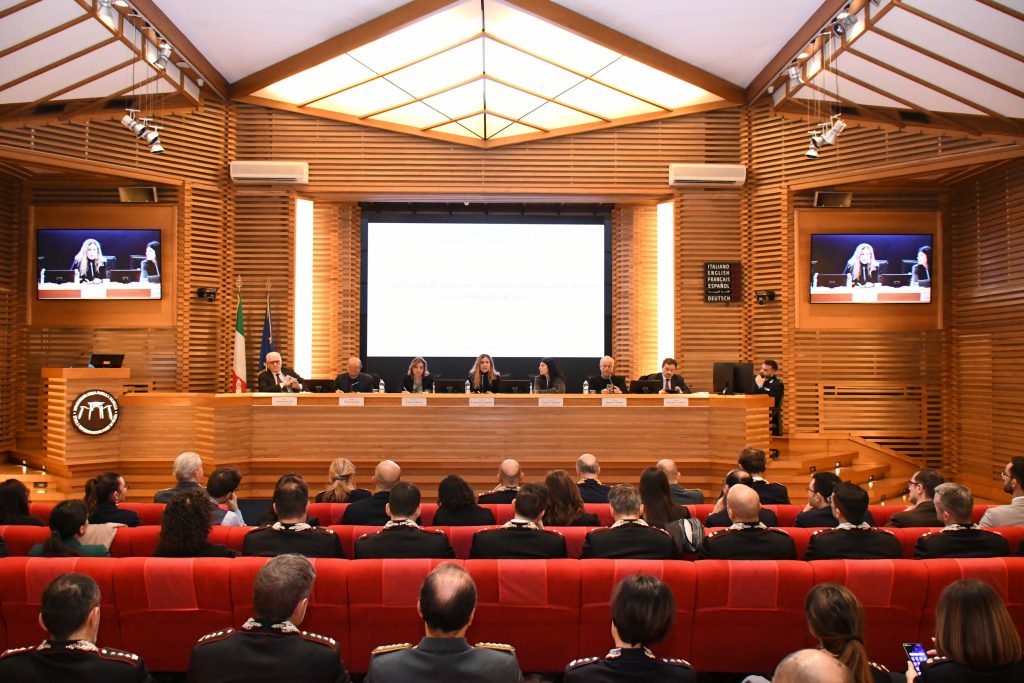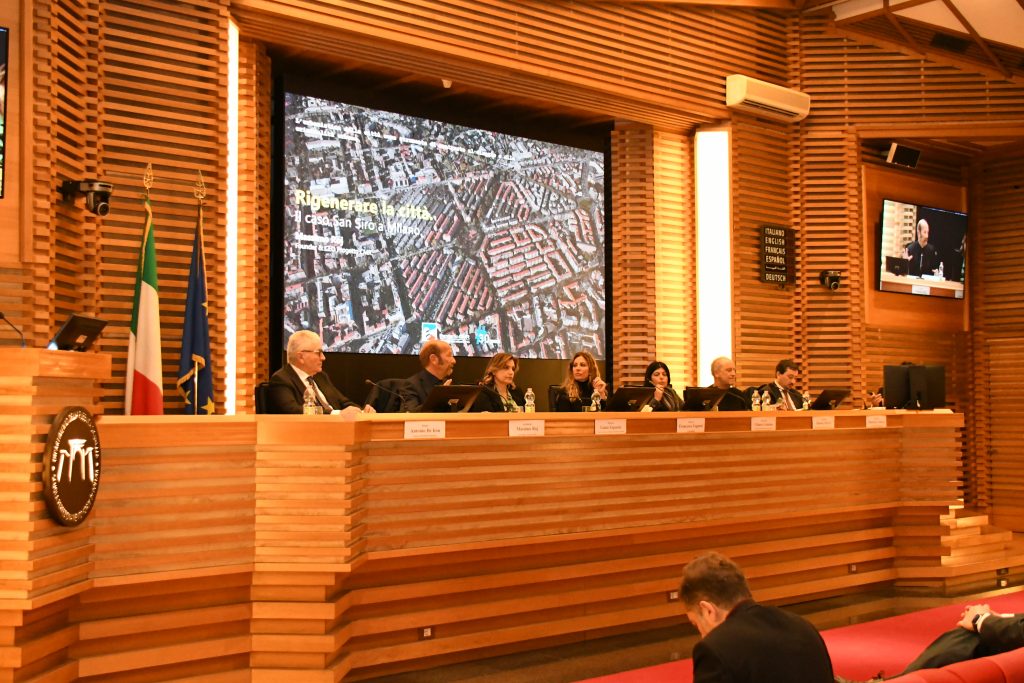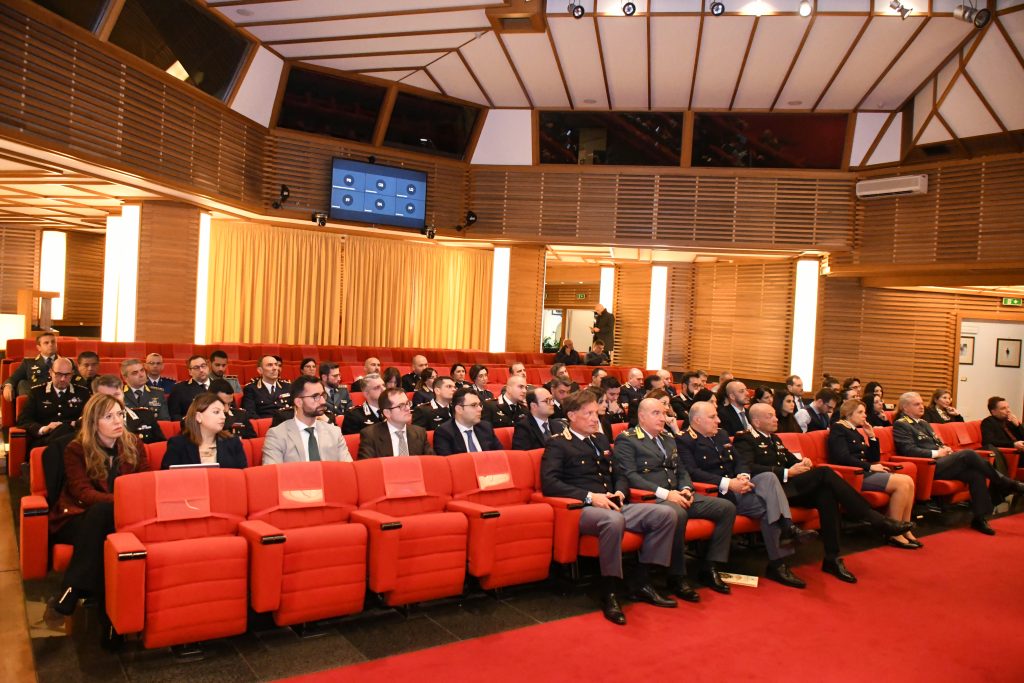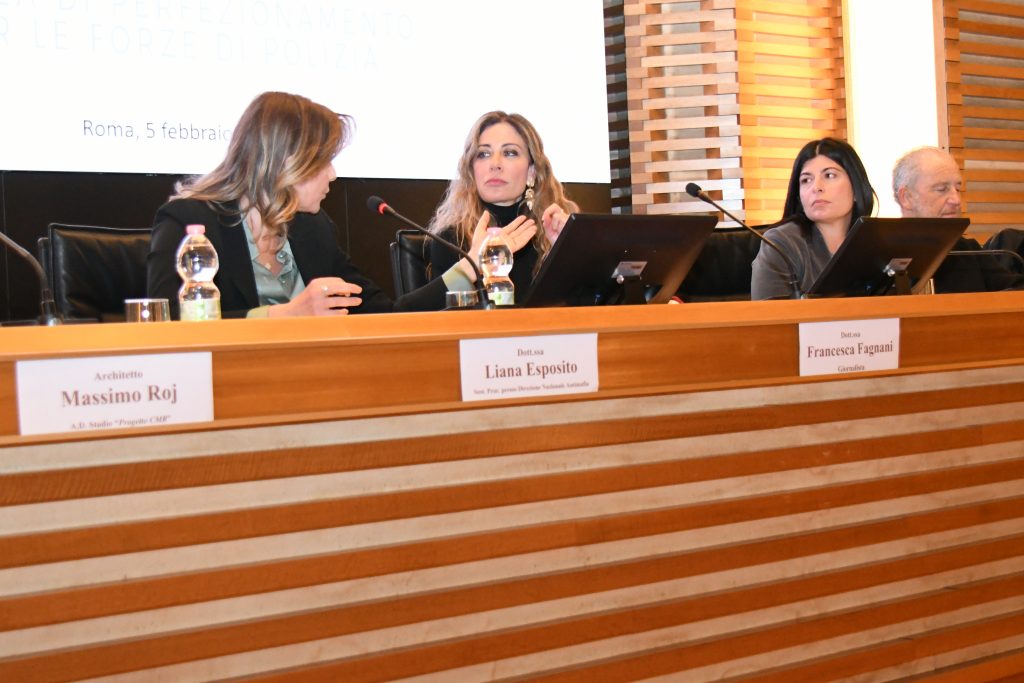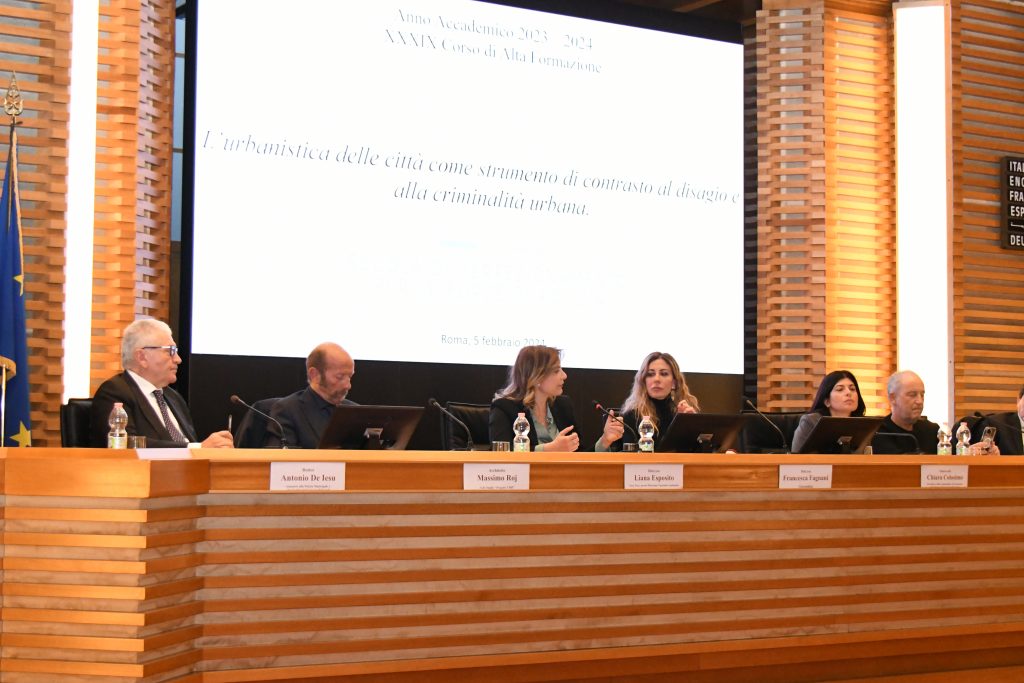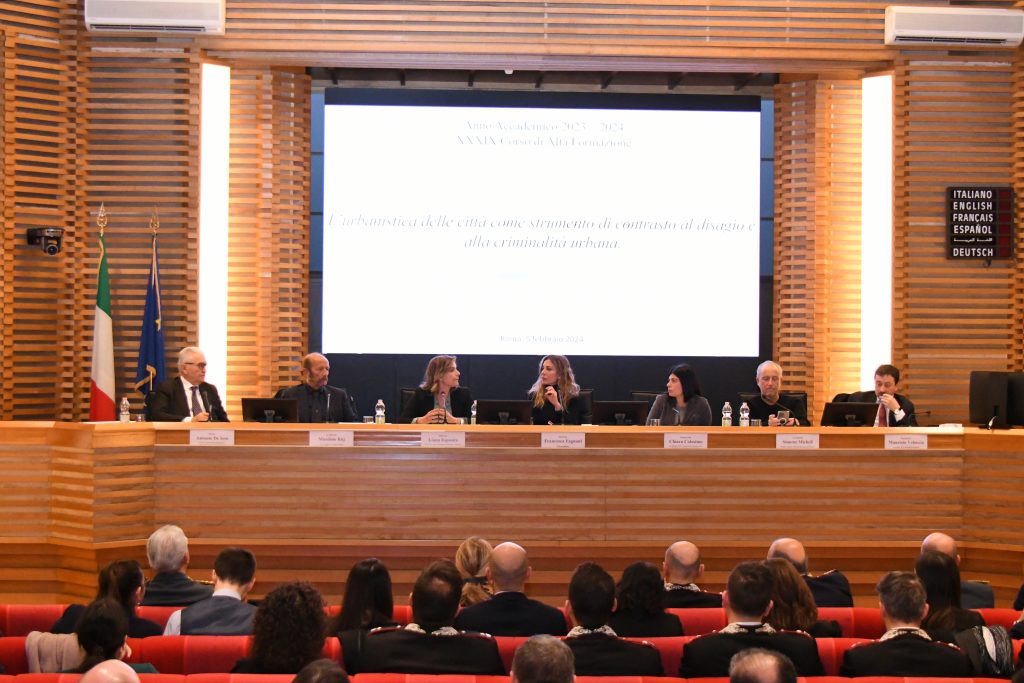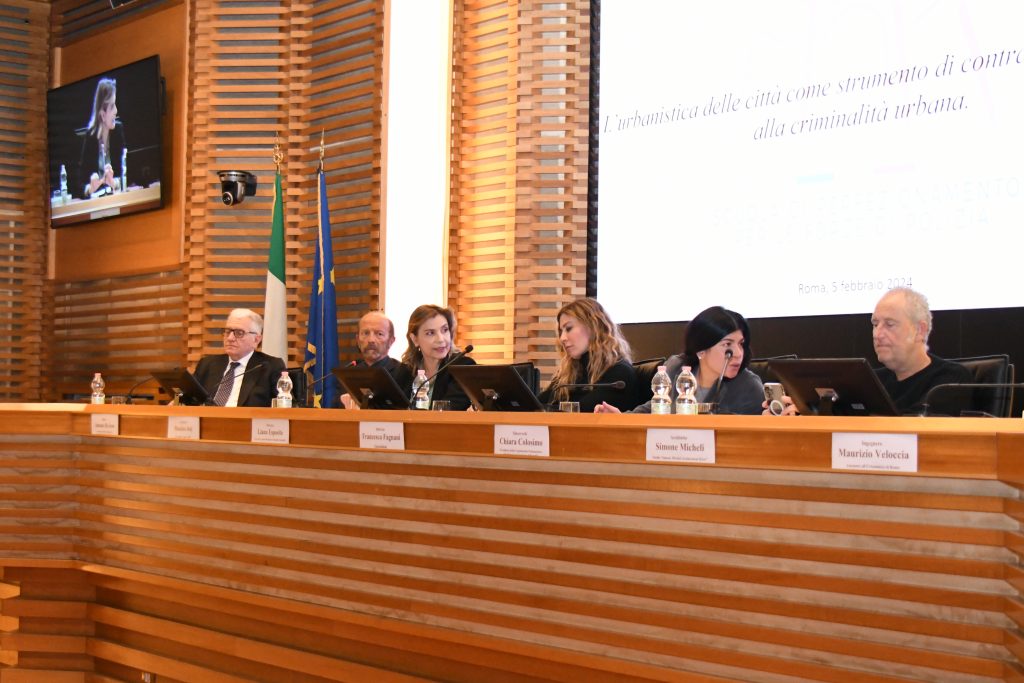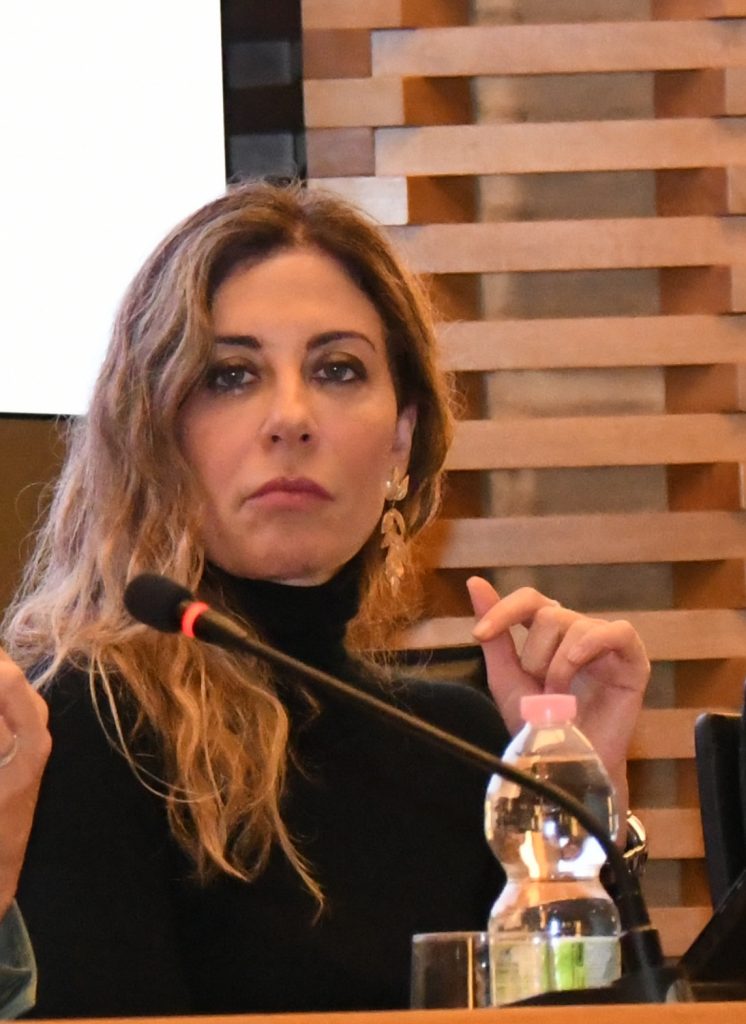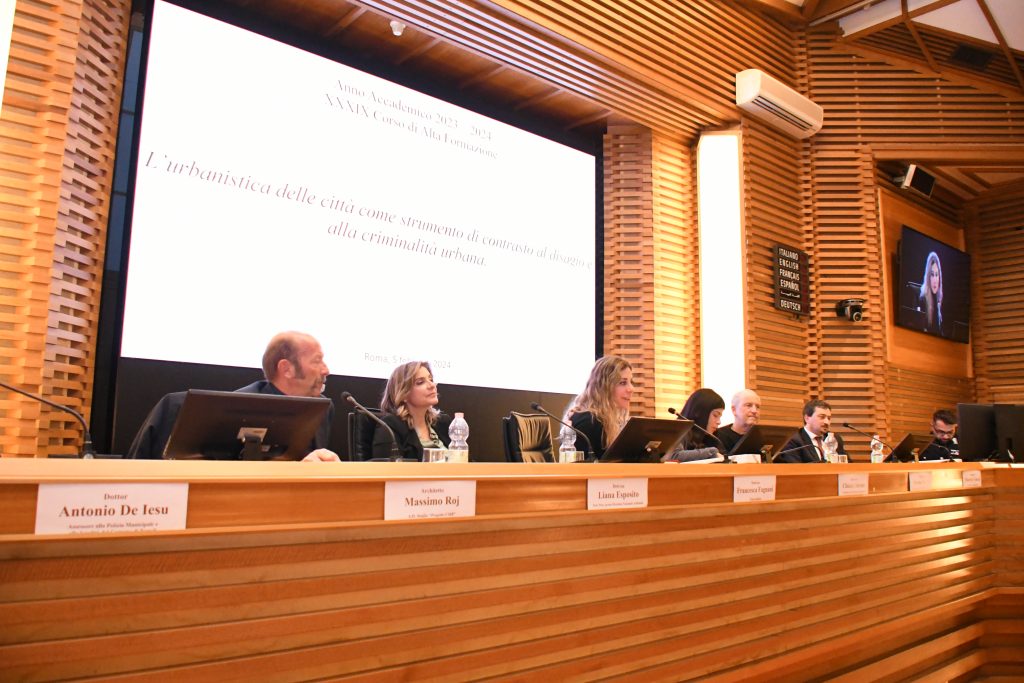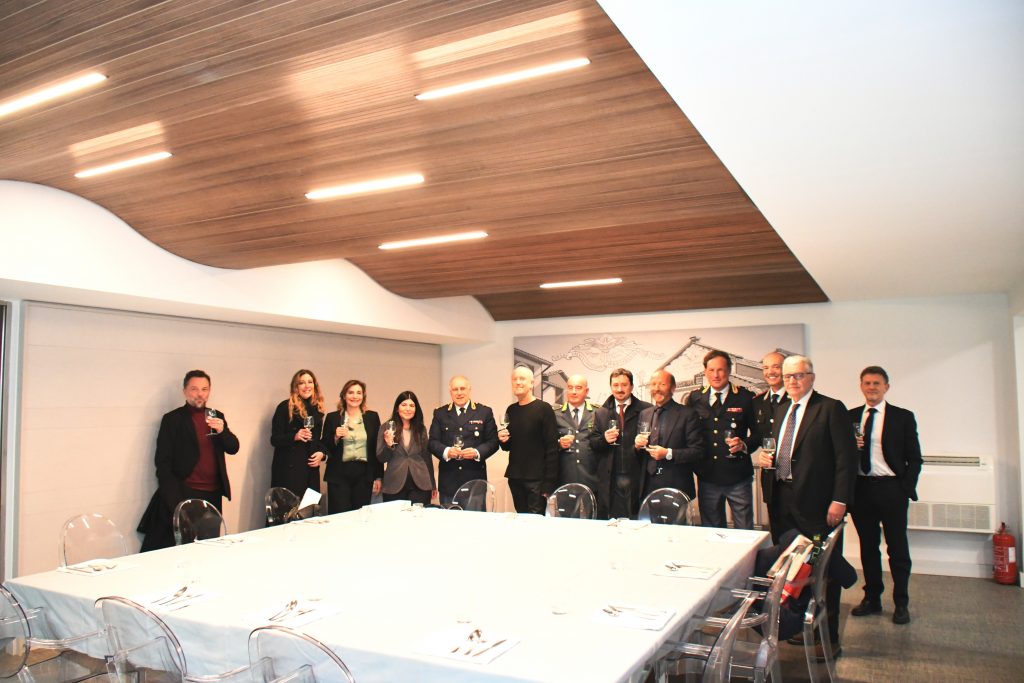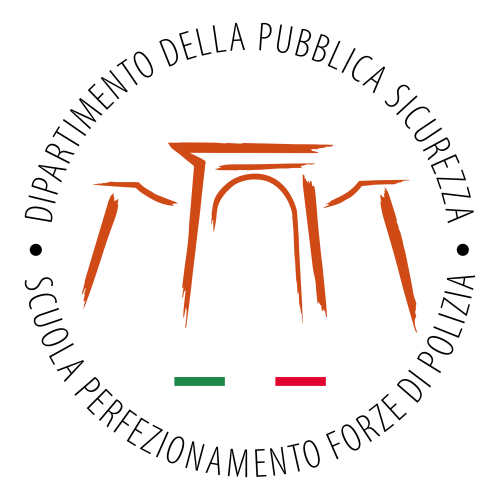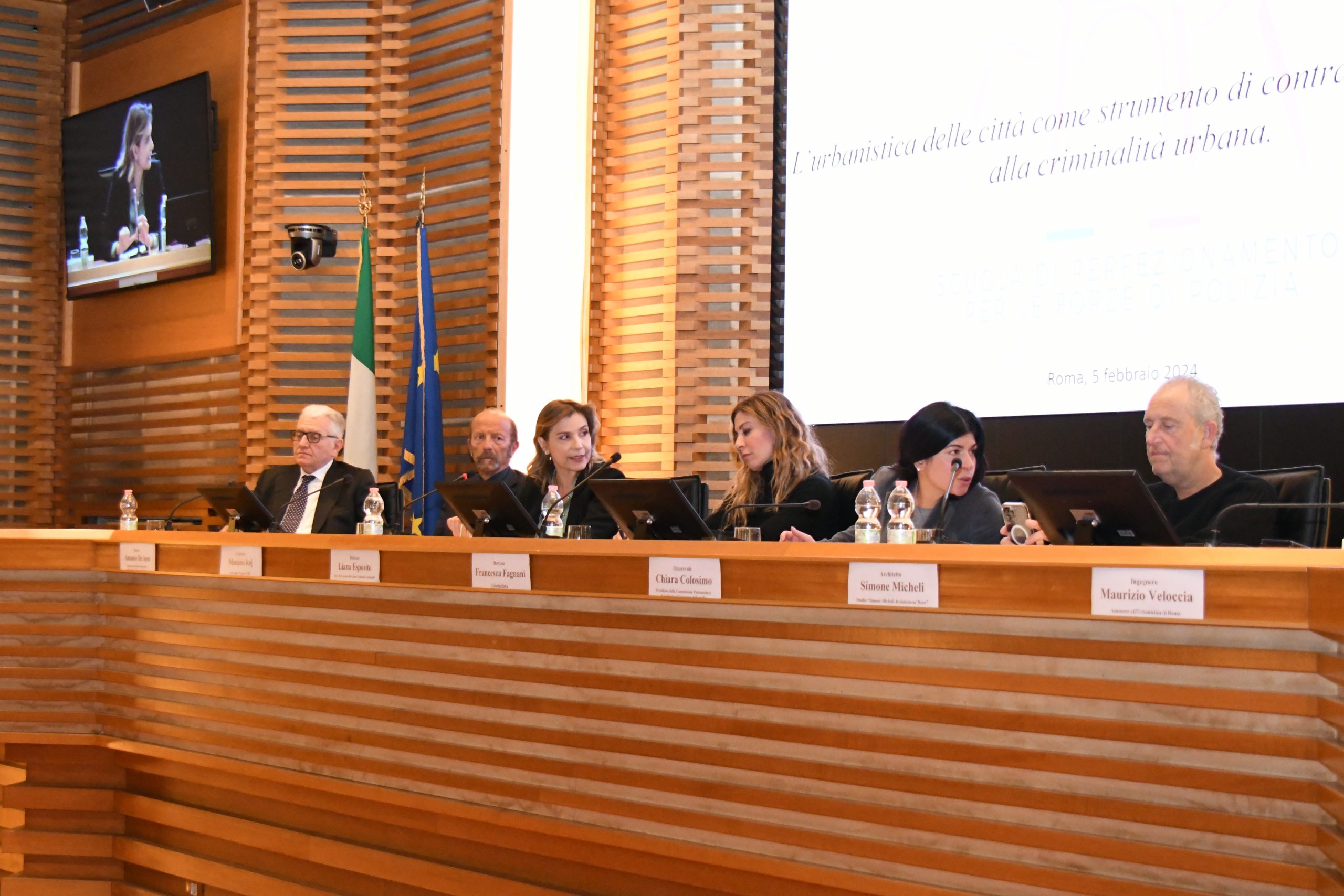In the morning of 5 February 2024, the Director of the Scuola di Perfezionamento, National Police Dirigente Generale Maurizio Vallone, welcomed and expressed his thanks to all the participants in the Round Table on “”Urban planning as a tool to counter urban distress and crime.” This event was held at the “Carlo Mosca” Conference Hall in our Institute.
On this occasion, Mrs. Chiara Colosimo, Member of Parliament and President of the Parliamentary Commission of Inquiry into the phenomenon of mafias, as well as Mrs. Liana Esposito, Deputy Prosecutor at the National Anti-Mafia and Anti-Terrorism Directorate, Prefetto Antonio De Iesu – Councillor for Municipal Police and Legality of the Naples’ Municipality, Mr. Simone Micheli, Architect and Founder of the Architectural Firm “Simone Micheli Architectural Hero”, Mr. Maurizio Veloccia, Engineer and Councillor for the Urban Planning of Rome and Mr. Massimo Roj, Architect and Managing Director of the Progetto CMR Architectural Firm, participated in this event.
Mrs. Francesca Fagnani, journalist and anchorwoman was the outstanding moderator of this event. She opened the meeting and analyzed the sensitive issue of urban decay as one of the causes of crime, quoting the thought of a writer, Sandro Bonvissuto, who has a deep knowledge of the prison environment: “I wonder if it is possible to attribute architectural canons to evil, but whoever conceived them is an expert in evil; evil as a shocking evidence.…”.
Mrs. Fagnani firstly took into account this point of view and then Prefetto De Iesu took the floor. The latter, who has a very long experience and deep knowledge of Naples-based criminal organizations, reported to the audience his exhaustive information about the most degraded areas of Naples, and described them using a quote from writer Maurizio Di Giovanni “…we have hell under our feet – with reference to the magma of volcanoes in the underground -, paradise over our heads – the blue sky – and Naples is the purgatory.”
It was pointed out that, in the towns, the scope of the problems related to security is changing: prevention and repression of crimes are no longer sufficient since promotion and guarantee of better living conditions are fundamental. This is also what emerged through the experience of Architect Massimo Roj who, with his project for the redevelopment of social housing in the San Siro area of Milan, illustrated the importance of plans and designs addressed to the future. As a matter of fact, this is the right purpose of the redevelopment of San Siro area, that is to say to take into account those who are looking for a work and find a dynamic town which provides for the possibility of living and living on a human scale.
However, towns are changed and these changes are not always positive.
Nowadays, the State institutions are increasingly focusing their attention on this issue, with the aim of being able to redevelop cities by means of different policies to be adopetd in distinct but, at the same time, closely related contexts.
Mrs. Esposito started from this issue and reported that, in the last ten years, detailed investigations into Camorra clans in the province of Naples have been conducted with a focus on urban districts built under Law 219/1981. This is no coincidence: in these areas, which are affected by serious social and urban degradation, not only by criminal activities, the Camorra clans can easily conduct their illegal activities, create drug markets and find criminal manpower, having acquired the total control, both at criminal and cultural level, over those communities where citizens are involved in criminal actions or suffer criminal coercion. In this framework, the State institutions must impose alternative and sound cultural models.
But in what way State institutions really face the issue of urban planning as a project to counter criminal organizations?
The answer was given by Councillor Veloccia, who stressed that the keystone in this situation is represented by the State. He explained that the urban planner and the architect are fundamental since they express the social value of that project. As a matter of fact, the person in charge of planning and designing has a great responsibility towards the persons who benefit from that project.
These goals can be achieved by means of the adoption of public and security policies, as well as by the urban planning, the preservation of the territories, the resolution of conflicts and the culture of legality.
The latter should be teached in the schools, which are of crucial importance and represent a sound atlernative for young people who have grown up with a distorted view of life, as well as with an inner sense of ugliness that will subsequently become their lifestyle.
This is the scenario illustrated by Architect Simone Micheli, who quoted a sentence of Bishop Giuliano Agresti: “…everything can change through the sense of beauty”.
Micheli explained that all of us must work together with the aim of creating a better future, because all the actors involved in the process of improvement have individual responsibilities: administrators, politicians or architects.
The Member of Parliament Colosimo pointed out the conclusions of this Round Table, expressed her thanks to all the lecturers and underlined that two institutions, the State and the anti-State, cannot live together in our towns. Moreover, she declared that this serious problem can be solved also by Urban Planning, which should be considered as a tool to counter urban distress and crime.
